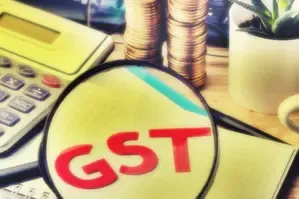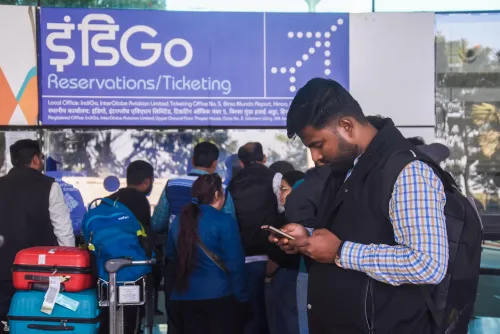Government Warns Public About Fraudulent GST Summons

Synopsis
Key Takeaways
- Beware of counterfeit GST summons.
- Verify the authenticity using the CBIC website.
- Report suspicious communications immediately.
- Legal action will be taken against fraudsters.
- 59,000 potential fake firms identified.
New Delhi, Jan 24 (NationPress) The Centre issued a warning on Friday, advising citizens to be vigilant against fraudsters who are distributing counterfeit summons regarding Goods and Services Tax (GST) violations.
The Central Board of Indirect Taxes and Customs (CBIC) highlighted that it has come to their attention that certain individuals with deceitful intentions are fabricating and dispatching bogus summons to taxpayers, regardless of whether they are under investigation by the Directorate General of GST Intelligence (DGGI).
According to a statement from the CBIC, “These counterfeit summons closely mimic the authentic ones due to the inclusion of the Department’s logo and Document Identification Number (DIN).”
Nevertheless, these DIN numbers are fraudulent and are employed by the scammers to lend an air of authenticity to their documents.
The Ministry of Finance reiterated, “Taxpayers can effortlessly verify the authenticity of any communication (including Summons) sent by any CBIC officer by utilizing the 'VERIFY CBIC-DIN' tool available on the CBIC’s website.”
If there’s any doubt regarding the legitimacy of a summons, taxpayers are urged to promptly report it to DGGI or CGST units, the Ministry added.
Upon checking the DIN, if a taxpayer discovers that the summons, letter, or notice is indeed fraudulent, it should be reported to the appropriate office without delay.
This action will empower the relevant DGGI or CGST unit to initiate legal measures against the fraudsters responsible for disseminating fake summons, letters, or notices to deceive the public.
Last year, the government initiated a special operation with Central and state GST authorities aimed at identifying and eliminating fictitious GST registrations that were being exploited for extensive ITC (input tax credit) fraud.
This operation will be executed in a synchronized manner between Central and state authorities. Based on specific identified risk indicators, nearly 59,000 potential fraudulent firms were pinpointed for further investigation and scrutiny.










